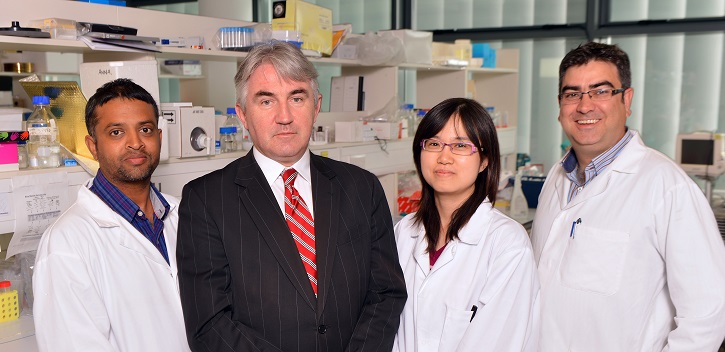2015 Press Releases
UCC research helps efficacy of stents

Drug eluting stents have revolutionized coronary artery disease treatment reducing the stent renarrowing rate within six months after placement which was a limitation of early generation bare metal stents.
This has widened the appeal and use of this stent option for patients with symptomatic angina or heart attack. However drug eluting stents are not without challenges as these patients require blood thinners (antiplatelet agents) for up to one year after stent placement. This need for antiplatelet drugs means that patients are at increased risk of bleeding which may become a more acute issue if the patient requires surgery while still on these medications.
It is thought that the need for extended anti-platelet therapy with drug eluting stents is driven predominantly by the delayed healing of the vessel wall that occurs secondary to the drugs released from the stent. “This is accepted as a necessary evil, so to speak,” says Professor Noel Caplice, Director of the Centre for Research in Vascular Biology at UCC and Chair of Cardiovascular Sciences “and to prevent renarrowing traditionally a potent anti-proliferative agent is released from the stent for some months after implantation.”
“We examined whether a gentler anti-renarrowing therapy that targeted specifically inflammation and was released again at the site of stent implantation might speed up repair while retaining the potenty towards reducing renarrowing of the lesion within the stent,” explains Professor Caplice. In an experimental model that closely replicates what happens in human subjects the team recently showed that using a small molecule to inhibit a major inflammatory protein (CX3CR1) slowly released from a stent they could successfully block renarrowing but not interfere with subsequent repair within the stent. “This drug therefore offers a possible option whereby healing within the stent may be speeded up compared to current stents," says Professor Caplice. "It is possible that this improved healing could translate into shorter time required for blood thinner use in patients. This would obviously have a potential impact for patient safety and reduce cost of therapy current associated with drug eluting stent placement. This work would need to be confirmed in a human trial before general application to patients.”
This preliminary work has just been published in the journal Biomaterials.
